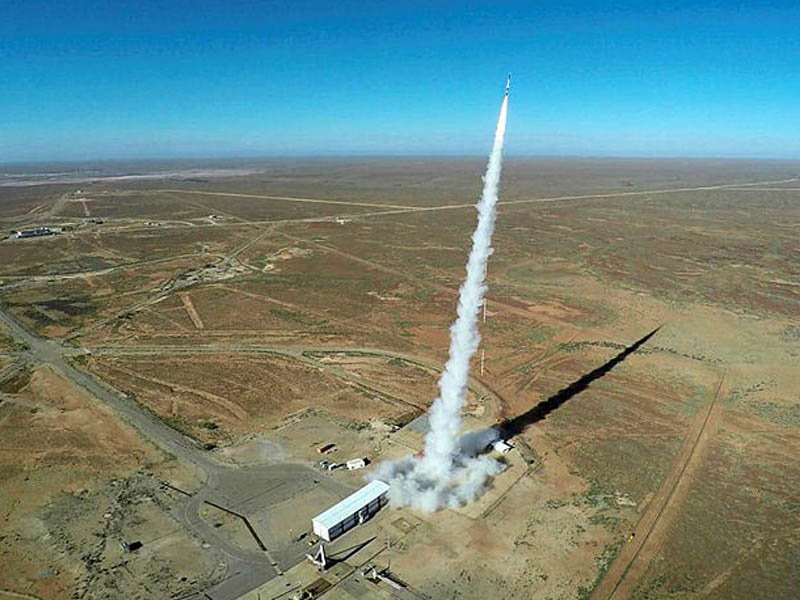Australia has a “huge window of opportunity” in growing its space sector, but success is riding on the government’s commitment to a national space agency and how much funding it is allocated, a new report has found.
In October last year the federal government announced it would establish a national space agency after a long-running push from the burgeoning space startup sector.
But few details were revealed, with its charter to be guided by an expert review panel that will report to government in March. It is expected the May federal budget will outline how much funding would be allocated to the agency.

In a new report for the Australian Strategic Policy Institute on Australia’s future in space, senior defence strategy and capability analyst Malcolm Davis said a national space agency is a good move, but “the devil is in the details”.
“The success of the agency will depend on what it’s required to achieve and its level of funding. The announcement needs to be backed up by strong government commitment in the agency’s charter and funding,” Mr Davis said in the report.
“If the substance is not there to back the government’s rhetoric, there’s a strong risk that this latest attempt to kickstart Australia’s greater participation in space will fall flat, like previous efforts.”
A lot is riding on the space agency and how it is directed to act, Mr Davis said.
“A failure to deregulate adequately or to properly support the new space agency will starve the space industry of oxygen needed to grow, and history will repeat itself. Local companies will shut down if profits can’t be made and jobs and expertise will once again go overseas,” he said.
“Australia will lose the chance the end its dependency on foreign providers for space support, and we’ll slip back into traditional approaches that bring increasing risk of a loss of access to space.
“That would be another missed opportunity for Australia to be competitive in a global space sector that’s rapidly expanding, but it would also be a missed chance for the ADF’s own sovereign space capability.”
Australia is currently heavily reliant on other countries, mainly the US, for its use of satellites by the Australian Defence Force.
“Any attempts to reverse this reliance have failed due to a “lack of funding, haphazard and chaotic administration and ultimately an absence of sound policy on space”, Mr Davis said.
“But this disappointing state of affairs may be about to give way to a much more ambitious and successful future for Australia in space,” he said.
“We now have the opportunity to move from a traditional policy of dependency on others to become an active space power, one with sovereign space capabilities in orbit and an active and growing space industry sector coordinated by an Australian space agency.”
Australia’s current reliance on other countries is creating an “unacceptable risk that in a crisis Australia could lose access to vital space systems”, potentially resulting in “rapid and catastrophic loss of military effectiveness and broader risks to national economic wellbeing”.
The space agency should not be based on NASA, an “old approach of taxpayer-funded, government-run space programs”, and should instead focus on Space 2.0, which “emphasises commercial space enterprises as leaders and exploits new technologies”.
This would improve the regulation surroundings, and providing funding for the ability to develop and manufacture Australia satellites, and to establish a local site so these can be launched from Australia too.
“It’s important to see Australia’s future in space from a Space 2.0 perspective, in which government lets the private sector lead,” the report said.
“Defence can plug into the rapid growth of an emerging industry to acquire new capabilities, including satellites and launchers.”
The report recommended that the government’s upcoming Defence White Paper should signal a shift from the “current nearly total reliance on external providers for critical space support to the ADF”.
“It should explicitly embrace an increasing degree of space self-reliance in the form of locally developed sovereign space capabilities based on the Space 2.0 model. This could occur simultaneously as Australia moves to develop a sovereign space industry in which commercial space enterprises contribute to Defence’s needs in space capabilities wherever possible,” Mr Davis said.
This new focus has the potential to greatly grow and improve the local Australia commercial space sector, which is currently suffering from a lack of government support rather than technology, Mr Davis said.
Australia is “well-positioned” to create its own launch sites and develop miniature satellites to propel into orbit in support of its Defence and other sectors, the report found.
The ADF has already announced two new projects in collaboration with UNSW – Biarria and Buccaneer – involving the use of cubesats to assist with its operations.
Many private sector companies are also leading the way in terms of a launch site and the development of satellites. Gilmour Space Technology is currently developing two launch vehicles and recently signed an agreement with NASA, while Equatorial Launch Australia is working on a launch site in the Northern Territory.
The policy report also recommended that the Australian government work with its nearby neighbours, including Japan, South Korea, Singapore and Indonesia, to establish satellite constellations to assist with these matters.
Do you know more? Contact James Riley via Email.

